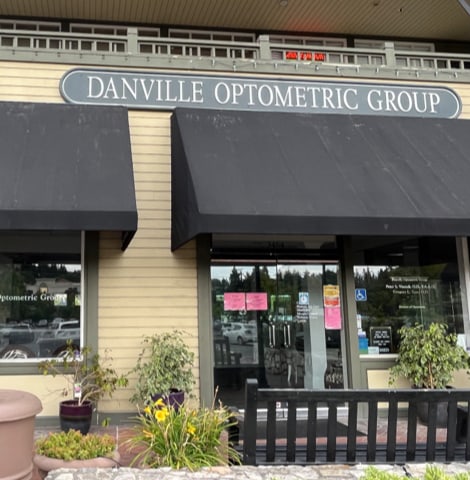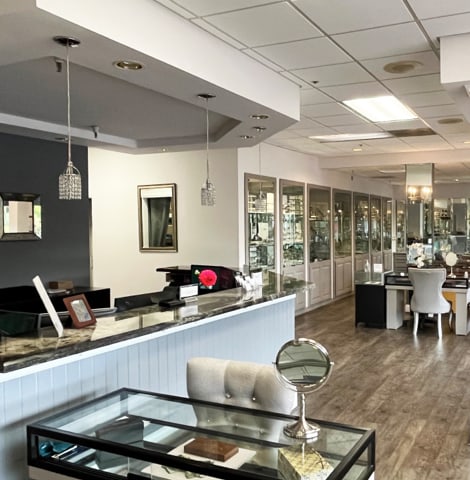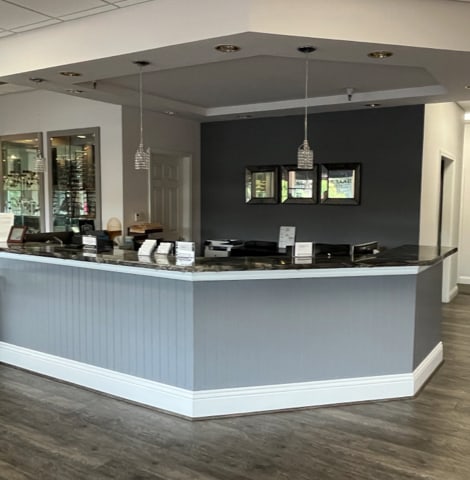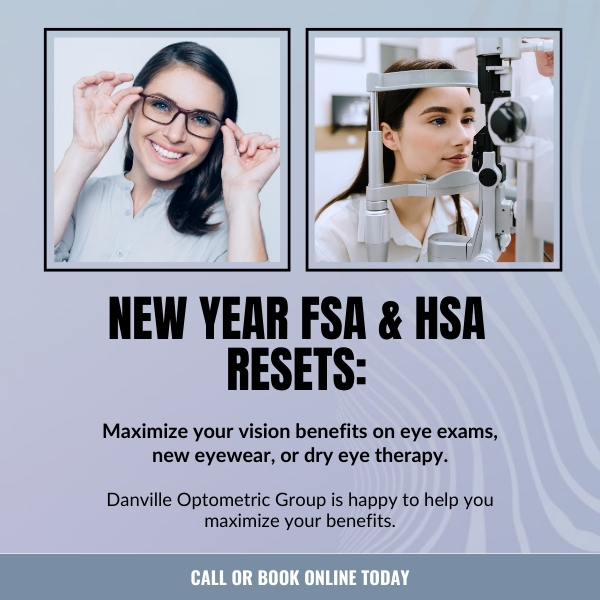It’s exciting to get a new pair of eyeglasses. You get to change your look, try new styles, and update your prescription to keep your vision clear. But it does take some time to adjust to new glasses, and, at first, you may notice unusual symptoms. So how long should these symptoms last?
For most people, the adaptation period is relatively short. It typically takes a few days to a couple of weeks to adjust to new glasses. If you ever notice significant discomfort—or think you’re not quite adjusting properly—visit your optometrist to discuss your options.
What to Expect When Adjusting to New Glasses
The feeling of wearing new glasses for the first time can be a mixed bag. Some people notice sharper vision, but they also notice something unusual—things tend to feel a bit off at first.
This is just your eyes adapting to new lenses or prescription changes, so it’s entirely normal. Your brain is receiving new signals, and your entire visual system is adapting to this new input.
When getting new glasses, you’ll likely notice:
- Initial discomfort or pressure on the nose and ears.
- Adjusting to new lens shapes or sizes.
- Temporary blurriness of vision or distortion.
- Eye strain or headaches as your eyes adapt.
These sensations are normal and are just part of the process. You shouldn’t worry about mild strain or discomfort. However, if your discomfort continues, return to your optometrist to talk about your alternatives.
What’s the Timeline for Getting Used to New Glasses?
The timeframe for adapting to new glasses isn’t the same for everyone. Most people need between 2–14 days for their eyes to fully adjust. But several factors can influence how long this process takes.
Age plays a big role here. Younger eyes develop faster—most children naturally adapt to new glasses in just a few days. However, as we get older, our eyes take longer to adjust. It’s common for adults over 40 to need several weeks.
Meanwhile, if you’re trying glasses for the first time, it will likely take longer for your eyes to adapt. Your brain needs to adjust to this new information. You can generally expect:
- First-time wearers may require a longer adjustment period, often up to two weeks.
- Minor prescription updates usually take just a few days for the eyes to adjust.
- Switching to multifocal or progressive lenses may take the longest to adapt.
Everyone’s experience will differ here, so be patient with yourself. If your symptoms persist beyond a few weeks, talk to an optometrist.
Tips for Adjusting to Your New Glasses
Getting comfortable with new glasses doesn’t have to be difficult. A few small changes to your routine can make the transition much smoother.
Consistency is one of the most significant factors. To make the adjustment easier, it helps to:
- Wear your glasses all day and avoid switching back to your old ones.
- Make sure your licensed optician has adjusted your glasses and rechecked all the measurements from height, wrap of frame front, back surface to eye distance, angle of frame when in primary gaze. These are critical and cannot be done online.
- Keep your glasses clean to ensure clear vision with proper antiglare and oleophobic cleaners and cloths. If you optician is using a car towel like at costco then it is not ideal and will scratch your lenses and damage the coatings
- Avoid comparing your vision with the new glasses to your old ones.
Make sure to wear your glasses as directed—this gives your eyes time to adapt to the lenses. It’s important to clean your lenses regularly and make sure there are no smudges, as these can interfere with your vision.
How Often Should You Update Your Glasses Prescription?
Your prescription isn’t something that stays the same forever. Over the years, you’ll likely notice small changes. This is normal, but it does mean you’ll need to update your prescription yearly.
For most adults, it helps to schedule an eye exam once per year. However, this varies depending on:
- Your age and how quickly your vision changes
- Whether you have existing eye conditions like astigmatism or glaucoma
- Recommendations from your optometrist or ophthalmologist
- Your overall eye health and any symptoms you may notice
If you notice strain every time you wear your glasses, make a note of this. This is unusual, and it should be addressed sooner rather than later.
Signs It’s Time for New Glasses
So how can you tell if it’s time for new glasses? Watch for signs you’re starting to struggle with your clear vision, or that your glasses themselves are becoming a bit dated. Watch for:
- Persistent headaches or eye strain
- Glare problems at night or the computer
- Squinting to see clearly
- Tired eyes after computer work
- Outdated style preferences
- An uncomfortable fit
- Wear and tear on the frames
- Damaged lenses
If you notice these, it’s time for a change. Fortunately, your optometrist can help! With a comprehensive eye exam, you can quickly get a new pair of glasses, and enjoy the clear decision you deserve. Remember—buying from your optometrist offers all kinds of benefits!
Is It Time to Update Your Glasses?
Adjusting to new glasses can take some time—but knowing what to expect makes all the difference. It’s important to keep up with your prescription and regularly update your eyewear. This is the key to keeping your vision clear.
That’s why our team at Danville Optometric Group is happy to help wherever we can. We can help you find a pair of glasses that doesn’t just help you see well, but look great too. Contact us today to schedule an appointment, and let’s find your future frames together.













